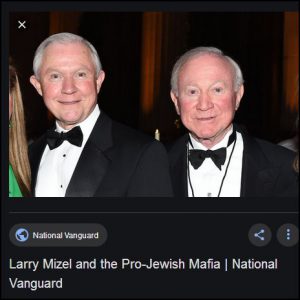USAG Bill Barr justified the illegal Invasion of Panama
Barr is a longtime proponent of the unitary executive theory of nearly unfettered presidential authority over the executive branch of the U.S. government.[1][2][3] In 1989, Barr, as the head of the OLC, justified the U.S. invasion of Panama to arrest Manuel Noriega. As deputy attorney general, Barr authorized an FBI operation in 1991 which freed hostages at the Talladega federal prison. An influential advocate for tougher criminal justice policies, Barr as attorney general in 1992 authored the report The Case for More Incarceration, where he argued for an increase in the United States incarceration rate.[4] Under Barr’s advice, President George H. W. Bush in 1992 pardoned six officials involved in the Iran–Contra affair.
https://en.wikipedia.org/wiki/William_Barr
From Wikipedia, the free encyclopedia
William Pelham Barr (born May 23, 1950) is an American lawyer and government official serving as the 85th United States Attorney General, in the Donald Trump administration since February 14, 2019. He also served as the 77th Attorney General from 1991 to 1993 during the George H. W. Bush administration.
From 1973 to 1977, Barr was employed by the Central Intelligence Agency during his schooling years. He then served as a law clerk to judge Malcolm Richard Wilkey. In the 1980s, Barr worked for the law firm Shaw, Pittman, Potts & Trowbridge, sandwiching a year’s work in the White House of the Ronald Reagan administration dealing with legal policies. Before becoming Attorney General in 1991, Barr held numerous other posts within the Department of Justice, including leading the Office of Legal Counsel (OLC) and serving as Deputy Attorney General. From 1994 to 2008, Barr did corporate legal work for GTE and its successor company Verizon Communications, which made him a multimillionaire. From 2009 to 2018, Barr served on the board of directors for Time Warner.
Barr is a longtime proponent of the unitary executive theory of nearly unfettered presidential authority over the executive branch of the U.S. government.[1][2][3] In 1989, Barr, as the head of the OLC, justified the U.S. invasion of Panama to arrest Manuel Noriega. As deputy attorney general, Barr authorized an FBI operation in 1991 which freed hostages at the Talladega federal prison. An influential advocate for tougher criminal justice policies, Barr as attorney general in 1992 authored the report The Case for More Incarceration, where he argued for an increase in the United States incarceration rate.[4] Under Barr’s advice, President George H. W. Bush in 1992 pardoned six officials involved in the Iran–Contra affair.
Barr became attorney general for the second time in 2019. That year, under his leadership, the Justice Department has argued to nullify the Affordable Care Act and reinstated the death penalty for federal crimes. Also in 2019, Barr was held in criminal contempt of Congress for defying subpoenas; his Department declined to prosecute him. Having criticized the Mueller investigation before taking office, Barr did not recuse himself from overseeing the investigation as attorney general. After receiving Mueller’s report he issued a four-page letter to Congress, describing what he said were its principal conclusions, and adding his opinion that the evidence presented did not establish obstruction of justice by Trump. Special counsel Mueller privately responded that Barr’s letter had misrepresented the report. After a redacted version of the actual report was released, fact-checkers and news organizations also stated that Barr’s letter mischaracterized the report. In March 2020, a federal judge sharply criticized Barr’s characterizations and ordered the Justice Department to provide him the redacted portions from the public version of the Report so he could determine if they were justified.
A December 9, 2019, report from the inspector general of the Justice Department found numerous mistakes, errors, and omissions[5] in the handling of the Russia investigation, but found no testimonial or documentary evidence that political bias against Trump tainted the initiation of the investigation.[6][7][8][9] Within hours of the IG report’s release, Barr publicly announced his disagreement with the report’s findings.[9] The following day, Barr claimed in an interview with NBC News that the Russia investigation was “completely baseless” and said he believed the FBI’s investigation may have been conducted in “bad faith”.[10]
Contents
- 1 Early life and education
- 2 Career
- 3 Political positions
- 4 Personal life
- 5 See also
- 6 References
- 7 Further reading
- 8 External links
Early life and education
Barr was born in New York City in 1950. His father, Donald Barr, taught English literature at Columbia University before becoming headmaster of the Dalton School in Manhattan and later the Hackley School in Tarrytown, New York, both members of the Ivy Preparatory School League. Barr’s mother, Mary Margaret (née Ahern), also taught at Columbia.[11] Barr’s father was Jewish and raised in Judaism but later converted to Christianity and joined the Catholic Church. His mother is of Irish ancestry. Barr was raised as a Catholic.[12][13] Barr was the second of four sons, and his younger brother Stephen Barr is a professor of physics at the University of Delaware.[14]
Barr grew up on New York City’s Upper West Side. As a child he attended a Catholic grammar school, Corpus Christi School, and then the non-sectarian Horace Mann School. After high school, he attended Columbia University, where he majored in government and graduated with a Bachelor of Arts in 1971. He did two additional years of graduate study at Columbia, receiving an Master of Arts in government and Chinese studies in 1973. Barr then moved to Washington, D.C., to work as an intelligence analyst while taking evening classes at the George Washington University Law School, graduating in 1977 with a Juris Doctor with highest honors.[15][16]
Career
Early career
Barr with President Ronald Reagan in the Oval Office in 1983
From 1971 to 1977, while attending graduate school and law school, Barr worked for the Central Intelligence Agency (CIA).[17] He was first hired as a summer intern for two years. During his law school years he was an analyst in the Intelligence Directorate division from 1973 to 1975, and then transitioning to an assistant in the Office of Legislative Counsel and an agency liaison to Congress from 1975 to 1977.[17][18][19][20]
After graduating from law school in 1977, Barr spent one year as a law clerk to Judge Malcolm Wilkey of the U.S. Court of Appeals for the D.C. Circuit.[21][15] He then joined the law firm of Shaw, Pittman, Potts & Trowbridge (now Pillsbury Winthrop Shaw Pittman) from 1978 to 1982 and again from 1983 to 1989,[21] after serving as Deputy Assistant Director for Legal Policy on the domestic policy staff at the Reagan White House from May 1982 to September 1983.[21][15][22]
U.S. Department of Justice
Barr and Dan Quayle watch as President George H. W. Bush signs the Civil Rights Commission Reauthorization Act in the Rose Garden of the White House in 1991.
In 1989, at the beginning of his administration, President George H. W. Bush appointed Barr to the U.S. Department of Justice as Assistant Attorney General for the Office of Legal Counsel (OLC), an office which functions as the legal advisor for the President and executive agencies. Barr was known as a strong defender of presidential power.[23] He wrote an advisory opinion justifying the U.S. invasion of Panama and arrest of Manuel Noriega.[23] He wrote legal justifications for the practice of rendition,[24] so that the FBI could enter onto foreign soil without the consent of the host government to apprehend fugitives wanted by the United States government for terrorism or drug-trafficking.[23] Barr declined a congressional request for the full 1989 opinion, but instead provided a document that “summarizes the principal conclusions”. Congress subpoenaed the opinion, and its public release after Barr’s departure from the Justice Department showed he had omitted significant findings in the opinion from his summary document.[25]
U.S. Deputy Attorney General (1990–1991)
In May 1990, Barr was appointed Deputy Attorney General, the official responsible for day-to-day management of the Department. According to media reports, Barr was generally praised for his professional management of the Department.[26][27][28]
During August 1991, when then-Attorney General Richard Thornburgh resigned to campaign for the Senate, Barr was named Acting Attorney General.[29] Three days after Barr accepted that position, 121 Cuban inmates, awaiting deportation to Cuba, seized nine hostages at the Talladega federal prison. He directed the FBI’s Hostage Rescue Team to assault the prison, which resulted in rescuing all hostages without loss of life.[30][31]
U.S. Attorney General (1991–1993)
Official photo of Barr during his first tenure as Attorney General
First nomination and confirmation
It was reported that President Bush was impressed with Barr’s management of the hostage crisis; weeks later, Bush nominated him as Attorney General.[32]
Barr enjoyed a “sterling reputation” among Republican and Democratic politicians alike.[33] His two-day confirmation hearing was “unusually placid”, and he was received well by both Republicans and Democrats on the Senate Judiciary Committee.[34] Asked whether he thought a constitutional right to privacy included the right to an abortion, Barr responded that he believed the Constitution was not originally intended to create a right to abortion; that Roe v. Wade was thus wrongly decided; and that abortion should be a “legitimate issue for state legislators”.[34] “Barr also said at the hearings that Roe v. Wade was ‘the law of the land’ and claimed he did not have ‘fixed or settled views’ on abortion.”[35] Senate Judiciary Committee Chair Joe Biden, though disagreeing with Barr, responded that it was the “first candid answer” he had heard from a nominee on a question that witnesses would normally evade; Biden hailed Barr as “a throwback to the days when we actually had attorneys general that would talk to you.”[36] Barr was approved unanimously by the Senate Judiciary Committee, was confirmed by voice vote by the full Senate,[37][38] and was sworn in as Attorney General on November 26, 1991.[39]
First tenure
During his first tenure as AG, media characterized Barr as “a staunch conservative who rarely hesitates to put his hardline views into action.”[40][41][42] He was described as affable with a dry, self-deprecating wit.[40][43] The New York Times described the “central theme” of his tenure to be “his contention that violent crime can be reduced only by expanding Federal and state prisons to jail habitual violent offenders.”[41] In an effort to prioritize violent crime, Barr reassigned three hundred FBI agents from counterintelligence work to investigations of gang violence. The New York Times called this move “the largest single manpower shift in the bureau’s history.”[41] The Case for More Incarceration
The Case for More Incarceration
In 1992, Barr authored a report, The Case for More Incarceration,[44] which argued for an increase in the United States incarceration rate, the creation of a national program to construct more prisons, and the abolition of parole release.[4] Barr argued that incarceration reduced crime, pointing to crime and incarceration rates in 1960, 1970, 1980 and 1990; a 1999 criminology study criticized Barr’s analysis, saying “so complex an issue as the relationship between crime and punishment cannot be addressed through so simplistic an analysis as a negative correlation between the two very aggregated time series of crime rates and incarceration rates.”[45] University of Minnesota criminologist Michael Tonry said the data in Barr’s report was deceptively presented; if Barr had chosen five-year intervals, then the data would not have supported Barr’s argument, and if Barr had chosen to look at violent crime specifically (as opposed to all crimes as a category), then the data would not have supported his argument.[46]
Barr said in the report, “The benefits of increased incarceration would be enjoyed disproportionately by black Americans”.[46] In the report, Barr approvingly quoted New Mexico Attorney General Hal Stratton, “I don’t know anyone [who] goes to prison on their first crime. By the time you go to prison, you are a pretty bad guy.”[47] Barr’s report influenced the Violent Crime Control and Law Enforcement Act of 1994, which aimed to increase the incarceration rate.[4]
Investigations
In October 1991, Barr appointed then-retired Democratic Chicago judge Nicholas Bua as special counsel in the Inslaw scandal. Bua’s 1993 report found the Department of Justice guilty of no wrongdoing in the matter.[48]
In October 1992, Barr appointed then retired New Jersey federal judge Frederick B. Lacey to investigate the Department of Justice and the Central Intelligence Agency handling of the Banca Nazionale del Lavoro (BNL) Iraqgate scandal.[49] The appointment came after Democrats called for a special prosecutor during the scandal fearing a “cover-up” by the administration. House Banking Committee Chairman Henry B. González called for Barr’s resignation, citing “repeated, clear failures and obstruction” by the Department of Justice in allegedly delaying an investigation of the BNL-Iraqgate case.[50][51] González also called for an independent special counsel investigation.[51]
Phone surveillance program
In 1992, Barr launched a surveillance program to gather records of innocent Americans’ international phone calls.[52] The DoJ inspector general concluded that this program had been launched without a review of its legality.[52] According to USA Today, the program “provided a blueprint for far broader phone-data surveillance the government launched after the terrorist attacks of Sept. 11, 2001.”[52]
On December 5, 2019, Democratic Senators Ron Wyden and Patrick J. Leahy asked the Justice Department’s Office of Professional Responsibility to investigate Barr for approving an illegal surveillance program without legal analysis.[53]
Iran-Contra
In late 1992, Independent Counsel Lawrence Walsh, who had been chosen to investigate the Iran–Contra affair, found documents in the possession of Reagan’s former defense secretary, Caspar Weinberger, which Walsh said was “evidence of a conspiracy among the highest-ranking Reagan Administration officials to lie to Congress and the American public.”[54][55] Weinberger was set to stand trial on felony charges on January 5, 1993.[54][56] His “indictment said Mr. Weinberger’s notes contradicted Mr. Bush’s assertions that he had only a fragmentary knowledge of the arms secretly sold to Iran in 1985 and 1986 in exchange for American hostages in Lebanon.”[56][55][57] According to Walsh, then-president Bush might have been called as a witness.[58]
On December 24, 1992, during his final month in office, Bush, on the advice of Barr, pardoned Weinberger,[15][59] along with five other administration officials who had been found guilty on charges relating to the Iran–Contra affair.[15][60][61][54] Barr was consulted extensively regarding the pardons, and especially advocated for pardoning Weinberger.[62]
Walsh complained about the move insinuating that Bush on Barr’s advice had used the pardons to avoid testifying and stating that: “The Iran-contra cover-up, which has continued for more than six years, has now been completed.”[63] In 2003, he wrote an account of the investigation in his book, Firewall: The Iran-Contra Conspiracy and Cover-Up.
Because of this and Barr’s unwillingness to appoint an independent counsel to look into a second scandal known as Iraqgate, New York Times writer William Safire began to refer to Barr as “Coverup-General Barr.”[64] Barr, however, responded that he believed Bush had made the right decision regarding that and he felt people in the case had been treated unfairly.[65] Barr said Walsh was a “head-hunter” who “had completely lost perspective.”[2]
Post-DOJ career
Upon leaving the DOJ in 1993, Barr was appointed by Virginia Governor George Allen to co-chair a commission to implement tougher criminal justice policies and abolish parole in the state.[66][67] Barr has been described as a “leader of the parole-abolition campaign” in Virginia.[68]
In 1994, Barr became Executive Vice President and General Counsel of the telecommunications company GTE Corporation, where he served for 14 years. During his corporate tenure, Barr directed a successful litigation campaign by the local telephone industry to achieve deregulation by scuttling a series of FCC rules, personally arguing several cases in the federal courts of appeals and the Supreme Court.[69][70] In 2000, when GTE merged with Bell Atlantic to become Verizon Communications, Barr became the general counsel and executive vice president of Verizon until he retired in 2008.[71] Barr became a multimillionaire from working in GTE and Verizon.
From 1997 to 2000, Barr served on the Board of Visitors of the College of William & Mary in Williamsburg.[72]
In 2009, Barr was briefly of counsel to the firm Kirkland & Ellis. From 2010 until 2017, he advised corporations on government enforcement matters and regulatory litigation; he rejoined Kirkland and Ellis in 2017.[73]
From 2009 to 2018, Barr served on the board of directors for Time Warner.[74]
Comments about the Starr investigation of President Clinton
In March 1998, Barr lambasted the Clinton administration for criticizing Independent Counsel Ken Starr‘s investigation of the Whitewater controversy, which had shifted towards an investigation of an alleged affair between Clinton and Monica Lewinsky.[2] Barr said the criticism appeared “to have the improper purpose of influencing and impeding an ongoing criminal investigation and intimidating possible jurors, witnesses and even investigators.”[2]
Comments about the Trump administration
On April 18, 2019, a redacted version of Report on the Investigation into Russian Interference in the 2016 Presidential Election was released to the public.
During the first two years of the Trump presidency, Barr frequently criticized legal challenges against Trump and investigations into the Trump 2016 campaign and presidency.[75][76]
In 2017, Barr said there was “nothing inherently wrong” with Donald Trump’s calls for investigating Hillary Clinton while the two were both running for president. Barr added that an investigation into an alleged Uranium One controversy was more warranted than looking into whether Trump conspired with Russia to influence the 2016 elections.[77] Barr also said in 2017 that he didn’t think “all this stuff” about incarcerating or prosecuting Hillary Clinton was appropriate to say, but added that “there are things that should be investigated that haven’t been investigated,” although the FBI began investigating the Clinton Foundation and the related Uranium One matter in 2015, followed by investigations by Republican congressional committees.[78][79][80]
In February 2017, Barr argued Trump was justified in firing Acting Attorney General Sally Yates over her refusal to defend Executive Order 13769.[81]
Barr was publicly critical of the special counsel investigation. In 2017, he faulted Mueller for hiring prosecutors who have contributed to Democratic politicians, saying that his team should have had more “balance,” and characterized the obstruction of justice investigation as “asinine” and that it was “taking on the look of an entirely political operation to overthrow the president.”[82][83]
In June 2018, Barr sent an unsolicited 20-page memo to senior Justice Department officials. He also provided copies to members of Trump’s legal team and discussed it with some of them.[84] In his memo, Barr argued that the Special Counsel should not be investigating Trump for obstruction of justice because Trump’s actions, such as firing FBI Director James Comey, were within his powers as head of the executive branch.[85][86][87] He characterized the obstruction investigation as “fatally misconceived” and “grossly irresponsible” and “potentially disastrous” to the executive branch.[88][89] The day after the existence of the memo became known, Deputy Attorney General Rod Rosenstein said “our decisions are informed by our knowledge of the actual facts of the case, which Mr. Barr didn’t have.”[90] Democrats later characterized the memo as Barr’s “job application” for the Attorney General position.[91]
Political donations
The National Republican Senatorial Committee (NRSC) financially assists Republicans in their Senate election contests; in the seven years from 2009 to 2016, Barr gave six donations to the NRSC totaling $85,400. In a five-month period from October 2018 to February 2019, Barr donated five times (around $10,000 every month) for a total of $51,000. When Barr started donating more frequently to the NRSC, it was uncertain whether then-Attorney General Jeff Sessions would remain in his job. Barr continued donating even after Sessions resigned, and after Trump nominated Barr for Attorney General. The donations stopped after Barr was confirmed by the Senate as Attorney General. NRSC refunded Barr $30,000 before his confirmation. Previously in 2017, Barr had said he felt “prosecutors who make political contributions are identifying fairly strongly with a political party”.[92]
U.S. Attorney General (2019–present)
Barr is sworn in as Attorney General by Chief Justice John Roberts in 2019.
Second nomination and confirmation
On December 7, 2018, President Donald Trump announced Barr’s nomination to succeed Jeff Sessions.[93][94] Michael Isikoff and Daniel Klaidman reported that Trump had sought Barr as chief defense lawyer for Trump regarding the special counsel investigation headed by Robert Mueller after Barr made three positions known. First, Barr supported Trump’s firing of Comey on May 9, 2017. Second, he questioned the appointments of some of Mueller’s prosecutors due to political donations they had made to the Clinton campaign. Third, he alleged there were conflicts of interest of two appointees to the Special Counsel Team, Jennie Rhee and Bruce Ohr.[95][96][97]
Barr meets with the Justice Department leadership.
Barr was confirmed as Attorney General on February 14, 2019, by a 54–45 near party-line vote, with Sen. Doug Jones (D-AL), Joe Manchin (D-WV), and Kyrsten Sinema (D-AZ) as the three Democrats to vote Yea. Republicans Rand Paul (R-KY) voted No and Richard Burr (R-NC) did not vote.[98][99] Later that day, Barr was sworn-in as the nation’s 85th Attorney General by Chief Justice John Roberts in a ceremony at the White House.[100] He is the first person to be appointed to a second non-consecutive term as Attorney General since John J. Crittenden in 1850.[101]
Second tenure
In May 2019, three months into his tenure as Attorney General, the Associated Press characterized Barr as a champion and advocate for Trump.[102] Barr had enthusiastically supported Trump’s political agenda, misrepresented aspects of Special Counsel Robert Mueller’s report, repeated Trump’s talking point that those investigating Trump had engaged in “spying”, defied congressional subpoenas, and refused to give Congress an unredacted version of the Mueller report.[102]
Under Barr’s leadership, the Justice Department changed its position on the Affordable Care Act (ACA). Previously the department took the position that the individual mandate provision was unconstitutional, but could be severed from the whole healthcare law. On March 25, the department updated its position to argue that the entire law is unconstitutional.[103] On May 2, the department conducted a filing with the United States Court of Appeals for the Fifth Circuit to nullify the entire law, arguing that the removal of the provision on individual mandate results in the entire law becoming unconstitutional.[104] As of that day, President Donald Trump has promised to produce a replacement health insurance plan only after he wins reelection in 2020.[105]
On May 1, 2019, Assistant Attorney General Stephen Boyd told the House Oversight Committee that Barr had instructed Justice Department official John Gore to refuse a subpoena to testify in front of the committee. The committee subpoenaed Gore over the Trump administration’s efforts to add a question on citizenship to the 2020 United States Census. The reason for the refusal was that the committee’s decision to not allow a Justice Department lawyer to accompany Gore during testimony violated “the confidentiality interests of the Executive Branch” (though a separate room was permitted).[106] In early June the House Oversight Committee moved to hold Barr in contempt of congress for defying a subpoena regarding the efforts to add a citizenship question to the census.[107] Two days after the 75th anniversary of D-Day, Barr likened his own experience at the Justice Department to the experience of the paratroopers who landed in Sainte-Mère-Église on D-Day.[108]
In July 2019, the House of Representatives voted 230-198 to hold Barr (and Commerce Secretary Wilbur Ross) in criminal contempt of Congress, after they failed to produce documents as April 2019 congressional subpoenas mandated. The documents, on the planned (and eventually scrapped) citizenship question in the 2020 census, were withheld due to a “deliberative process” and “attorney-client communications”, according to the Justice Department. President Trump also asserted executive privilege over the documents to withhold them from Congress. Only once prior prior has a sitting Cabinet member been held in criminal contempt of Congress (Eric Holder in 2012). The House instructed the Justice Department to prosecute Barr, but the Department refused.[109][110]
Also in July 2019, Barr reportedly made the decision to not bring federal civil rights charges against New York policeman Daniel Pantaleo for causing the death of Eric Garner. In so doing, he overruled the Justice Department’s Civil Rights Division, which advocated charging Pantaleo, instead agreeing with Justice Department prosecutors from New York.[111]
On July 25, 2019, Barr reinstated the death penalty for federal crimes.[112]
In December 2019, Barr said that communities that do not show the “respect and support that law enforcement deserves … might find themselves without the police protection they need.”[113]
In February 2020, Senator Lindsey Graham stated that the Justice Department “is receiving information coming out of the Ukraine from” Rudy Giuliani, a personal lawyer to president Donald Trump. Graham had learnt from Barr that “they’ve created a process that Rudy could give information and they would see if it’s verified”. A day later, Barr confirmed Graham’s account, stating that he had “established an intake process” for information on Ukraine, including from Giuliani, while citing an “obligation to have an open door” policy on receiving information. Giuliani has claimed to have information of improprieties regarding Ukraine for Joe Biden (a former vice president, later a 2020 presidential candidate) and his son Hunter Biden. Giuliani himself is reportedly being investigated by the Justice Department, with two of his associates having been arrested.[114][115][116]
Also in February 2020, President Trump directly referenced Barr in the Justice Department’s intercession in recommending a lighter sentence for Trump’s associate and old friend Roger Stone. Trump’s tweet stated: “Congratulations to Attorney General Bill Barr for taking charge of a case that was totally out of control and perhaps should not have even been brought.” Initially, four career prosecutors had recommended that Stone serve a jail term of between seven to nine years. A Trump tweet followed: “Cannot allow this miscarriage of justice!” – after which the Department recommended an unspecified jail term. The Department claimed that this later decision was made without consulting the White House. The prosecutors resigned from the case as a result, with one choosing to leave the Department.[117][118] Barr in turn said Trump had not asked him to step in, but noted that Trump’s tweets and public comments make it impossible for the attorney general to do his job. “I think it’s time to stop the tweeting about Department of Justice criminal cases,” Barr said.[119] Barr’s rebuke of Trump’s use of Twitter for interference in DOJ matters were seen as a rare departure from his usual unwavering support of the president. Barr’s comments followed criticism of the department for its poor handling of the sentencing of Roger Stone after DOJ actions seen as favorable to Trump and his allies.[120][121] Days later, more than 2,000 former DOJ employees signed a letter calling for Barr’s resignation.[122] while the Federal Judges Association of over 1,000 federal jurists called an emergency meeting for February 18 to discuss their concerns about the intervention of Trump and Justice Department officials in politically sensitive cases.[123] Despite Barr’s rebuke of Trump, days later the president resumed denouncing the prosecutors, the judge, and the jury foreperson in the Stone case, while acknowledging that his comments made Barr’s job harder.[124] After granting several pardons, Trump also labelled himself as the country’s “chief law enforcement officer”, a description usually reserved for the attorney general.[125]
Mueller investigation and report
Further information: Special Counsel investigation (2017–2019) and Mueller Report
On January 14, 2019, a day before Barr’s confirmation hearing for Attorney General, Barr sent written testimony to the Senate Judiciary Committee regarding the eventual final Mueller report, saying “it is very important that the public and Congress be informed of the results of the special counsel’s work … For that reason, my goal will be to provide as much transparency as I can consistent with the law.”[126][127]
Upon taking office Barr refused calls to recuse himself from overseeing the Mueller investigation, despite his June 2018 memo arguing that the special counsel had no right to investigate Trump.[85][89]
On March 22, 2019, Mueller concluded his special counsel investigation and gave the final report to Barr.[128] On March 24, Barr wrote a four-page letter to Congress describing what he said were the report’s principal conclusions: first, that the Special Counsel did not establish conspiracy or coordination between the Trump campaign and Russia’s efforts to interfere with the 2016 election; and second, that the Special Counsel made no decision as to whether to prosecute Trump for obstruction of justice, quoting “while this report does not conclude that the President committed a crime, it also does not exonerate him.” Barr and Deputy Attorney General Rosenstein themselves concluded that the evidence did not establish obstruction of justice beyond reasonable doubt, and made the decision not to press the charge; “Deputy Attorney General Rod Rosenstein and I have concluded that the evidence developed during the Special Counsel’s investigation is not sufficient to establish that the President committed an obstruction-of-justice offense.”[129][130][131][132]
On March 25, Mueller reportedly wrote a letter to Barr, as described in the New York Times as “expressing his and his team’s concerns that the attorney general had inadequately portrayed their conclusions”.[133] In USA Today it was described that Mueller “expressed his differences with Barr”.[134]
On March 27, Mueller sent Barr another letter describing his concerns of Barr’s letter to Congress and the public on March 24. In it, Mueller complained that the summary “did not fully capture the context, nature, and substance” of the Special Counsel’s probe, adding, “There is now public confusion about critical aspects of the results of our investigation. This threatens to undermine a central purpose for which the Department appointed the Special Counsel: to assure full public confidence in the outcome of the investigations”.[135] Both before and after the release of Barr’s summary, Mueller repeatedly tried to get Barr to release the report’s introductions and executive summaries. Mueller’s March 27 letter also stated that he had earlier sent a March 25 letter to Barr.[136]
Mueller’s March 27 letter prompted Barr to call Mueller on March 28. Barr clarified on the intention of his letter both in his phone call with Mueller and in another letter to Congress that his letter had not been intended to be a summary of the report, but rather a description of the principal findings of the report.[137][135]
On April 9, Barr appeared in a congressional hearing before the House. There, Representative Charlie Crist described media reports that “members of the special counsel’s team are frustrated at some level with the limited information included in your March 24 letter, that it does not adequately or accurately portray the [Mueller] report’s findings”. Crist asked Barr: “Do you know what they are referencing with that?” Barr replied: “No, I don’t. I think – I think – I suspect that they probably wanted more put out, but in my view, I was not interested in putting out summaries.”[138][139] On April 10, Attorney General Barr appeared before the Senate Appropriations Committee. Senator Chris Van Hollen asked Barr regarding obstruction: “Did Bob Mueller support your conclusion?” Barr replied: “I don’t know whether Bob Mueller supported my conclusion.”[138][139]
The Department of Justice released a redacted version of the special counsel’s report in the morning of April 18, 2019.[140][141] After the release of the full report, fact-checkers and news outlets characterized Barr’s initial letter as a deliberate mischaracterization of the Mueller Report and its conclusions.[142][143][144][145][146][147] The New York Times reported instances in which the Barr letter omitted information and quoted sentence fragments out of context in ways that significantly altered the Mueller findings, including:[142]
- A sentence fragment described only one possible motive for Trump to obstruct justice, while the Mueller report listed other possible motives
- Omission of words and a full sentence that twice suggested there was knowing and complicit behavior between the Trump campaign and Russians that stopped short of coordination
- Omission of language that indicated Trump could be subject to indictment after leaving office, to suggest that Trump was cleared in full
According to the Associated Press, Barr misrepresented the report in several ways, saying the report gave no indication that Congress could make a determination on obstruction of justice (the report specifically stated “that Congress may apply obstruction laws”) and that “these reports are not supposed to be made public” (when DOJ regulations give the AG wide authority in releasing reports such as this one).[148] Barr falsely claimed in his summary of the report that “the White House fully cooperated with the Special Counsel’s investigation.”[149] The Washington Post fact-checker described Barr’s claim as “astonishing”[143] and PolitiFact said it was “false.”[149] In actuality, Trump declined to grant the Special Counsel an in-person interview, and the Special Counsel report characterized Trump’s written responses to interview questions as “inadequate”.[149] The report also documented numerous instances where Trump tried to either impede or end the Special Counsel investigation, analyzing each in terms of the three factors necessary for a criminal charge of obstruction.[149][150][151][not in citations given]
During a press conference, Barr said Mueller’s report contained “substantial evidence” that Trump was “frustrated and angered” because of his belief that the “investigation was undermining his presidency, propelled by his political opponents, and fueled by illegal leaks”; however, the report gave no indication that Trump’s frustrations with the investigation would mitigate obstructing behavior.[136][152][153] Barr also said it would not be criminal obstruction of justice for a president to instruct a staffer to lie to investigators about the president’s actions,[154] and suggested a president could legally terminate an investigation into himself if he was being “falsely accused”.[155]
On May 8, 2019, the House Judiciary Committee voted along party lines to hold Barr in contempt of congress for failing to comply with a subpoena which requested the full and unredacted Mueller Report.[156] The matter then fell to the House of Representatives at-large for a contempt of Congress vote.[157] The Justice Department took the position that disclosure of the unredacted Mueller Report would require the department to violate “the law, court rules and court orders” as well as grand jury secrecy rules.[156]
During May 1, 2019, testimony before the Senate Judiciary Committee, Barr stated he accepted Mueller’s interpretation of the law that was applied in the Report. However, in a May 30 CBS News interview, Barr said he had applied his own interpretation of the law and took the position that obstruction laws cannot apply to presidents who abuse their official powers to impede an investigation for a corrupt reason. Barr elaborated: “As a matter of law … we didn’t agree with the legal analysis – a lot of the legal analysis in the report. It did not reflect the views of the department”.[158][159]
In March 2020, Reggie Walton, a federal district judge originally appointed by President George W. Bush, criticized Barr’s characterizations of the Mueller report as “distorted” and “misleading”. Walton made his comments while presiding over a lawsuit on whether the Mueller report should be released without redactions. As Walton saw it, Barr’s “lack of candor” undermined Barr’s “credibility and, in turn, the department’s” arguments before the court. Walton had concerns that Barr may have made a “calculated attempt to influence public discourse” in favor of President Trump by establishing “a one-sided narrative” about the report contrary to the report’s findings. Walton questioned if the report’s redactions were actually “self-serving” to avoid conflict with Barr’s statements, and if the Justice Department used “post-hoc rationalizations” to defend Barr. Thus, Walton decided to personally review the redacted material to check if the redactions were justified.[160][161]
Spying claims
Main article: Spygate (conspiracy theory)
In April 2019, Barr stirred controversy by saying he thought “spying did occur” against the Trump 2016 presidential campaign.[162] The remark echoed unsubstantiated claims made by Trump and his supporters that the Trump campaign had been unfairly targeted or spied on by the FBI; Trump described it as an “attempted coup.”[163][162][164][165][166] There is no evidence that government officials engaged in “spying” on the Trump campaign.[164] Barr later said he was not sure what spying had occurred and he did clarify what he meant by “spying”.[162] He also said he had no evidence of wrong-doing.[162][165] Democrats criticized Barr’s statement as “incendiary”, saying the statement was intended to please Trump and that the statement lacked credibility following Barr’s misrepresentation of the Mueller report in March 2019.[162][164][165] Barr said he thought there was not “any pejorative connotation at all” to the term spying.[167] At the time, Barr said he would not launch an investigation into the origins of the FBI probe into Russian interference in the 2016 election.[164]
FBI officials denied Barr’s claims about spying.[168] FBI Director Christopher A. Wray said he was unaware of any illegal surveillance, abuse of powers or “spying” by the FBI.[169] Subsequently, Trump retweeted a far-right pundit who said the FBI had “no leadership” and that Wray was “protecting the same gang that tried to overthrow the president in an illegal coup”.[170] Trump said Wray’s statement was “ridiculous.”[170] Former FBI Director James Comey rebutted Barr, saying “The FBI doesn’t spy. The FBI investigates.”[163]
In May 2019, Barr asserted, “Government power was used to spy on American citizens”.[167] Barr did not identify the specific actions prior to the 2016 election that he considered spying.[167] After broadcasting some of Barr’s remarks, Fox and Friends host Steve Doocy, a Trump loyalist,[171] falsely asserted that FISA was designed “so that the United States could surveil people in other countries and it’s very disturbing if they use the laws that are supposed to apply to people from other countries to spy on Americans illegally.”[172] The same day, Trump said his campaign was “conclusively spied on”, characterized the purported spying as “treason”, and called for “long jail sentences.”[173][174]
Origins of the Russia investigation
Main article: Russia investigation origins conspiracy theory
Also in May 2019, Barr appointed John Durham, the U.S. attorney in Connecticut, to oversee a DOJ probe into the origins of the FBI investigation into Russian interference.[170] The origins of the probe were already being investigated by the Justice Department’s inspector general and by U.S. attorney John Huber, who was appointed in 2018 by Jeff Sessions.[170] Democrats criticized the decision, with Sen. Patrick Leahy saying, “Ordering a 3rd meritless investigation at the request of Trump is beneath the office he holds.”[170] Trump ordered the intelligence community to cooperate with Barr’s inquiry and granted Barr unprecedented full authority to declassify any intelligence information related to the matter.[175][176][177][178][179]
In September 2019, Barr was reported to have been contacting foreign governments to ask for help in this inquiry, including personally traveling to the United Kingdom and Italy to seek information. At Barr’s request Trump phoned the prime minister of Australia to request his cooperation.[180][181] Barr sought information related to a conspiracy theory that had circulated among Trump allies in conservative media asserting Joseph Mifsud was a Western intelligence operative who was allegedly directed to entrap Trump campaign advisor George Papadopoulos in order to establish a false predicate for the FBI to open an investigation into Russian interference in the 2016 United States elections. On October 2, 2019, Senator Lindsey Graham, a staunch Trump supporter and chairman of the Senate Judiciary Committee, wrote a letter to the leaders of Britain, Australia and Italy, asserting as fact that both Mifsud and Australian diplomat Alexander Downer had been directed to contact Papadopoulos. Joe Hockey, the Australian ambassador to the United States, sharply rejected Graham’s characterization of Downer.[182][183] A former Italian government official told The Washington Post in October 2019 that during a meeting the previous month, Italian intelligence services told Barr they had “no connections, no activities, no interference” in the matter; Italian prime minister Giuseppe Conte later affirmed this.[184][185] One British official with knowledge of Barr’s requests observed, “it is like nothing we have come across before, they are basically asking, in quite robust terms, for help in doing a hatchet job on their own intelligence services.”[186] The Washington Post reported on November 22, 2019 that the Justice Department inspector general had aggressively investigated the allegation that Mifsud had been directed to entrap Papadopoulos, but found it was without merit. The Post also reported the inspector general found the opening of the FBI’s Crossfire Hurricane investigation was legally and factually predicated.[187] The Post subsequently reported in December 2019 that Barr disagreed with the inspector general’s conclusion that there was adequate evidence for the FBI to open its investigation.[188] The Post also reported in December 2019 that the inspector general asked Durham and several American intelligence agencies if there was evidence of a setup by American intelligence, but they replied there was none.[189]
On October 24, 2019, two sources told The New York Times that the Durham inquiry had been elevated to a criminal investigation.[190] The Times reported on November 22 that the Justice Department inspector general had made a criminal referral to Durham regarding Kevin Clinesmith, a low-level FBI attorney who had altered an email during the process of acquiring a wiretap warrant renewal on Carter Page, and that referral appeared to be at least part of the reason Durham’s investigation was elevated to criminal status.[191] Barr rejected criticism by Democrats in Congress that the transitioned investigation was designed to provide support to Trump during his impeachment inquiry in the Trump-Ukraine scandal.[192][193]
In November 2019, Justice Department Inspector General Michael Horowitz concluded his investigation into the origins of the 2016 Russia probe, concluding that the investigation was not tainted by “political bias or improper motivation”, and that the initial information gathered “was sufficient to predicate the investigation” given the “low threshold” for opening an investigation. Barr rejected the conclusions of the report, declaring that the investigation was started “on the thinnest of suspicions that, in [his] view, were insufficient to justify the steps taken.” This also contradicted FBI director Chris Wray, who interpreted Horowitz’s findings as the investigation having “appropriate predication and authorization”.[194][195]
In December 2019, Barr claimed in an interview with NBC News that the Russia investigation was “completely baseless” and said he believed the FBI’s investigation may have been conducted in “bad faith”.[10] Barr also refused to refute the debunked conspiracy theory of Ukrainian interference in the 2016 election during the interview.[10][196] In a subsequent interview on Fox News, Barr asserted, “the president bore the burden of probably one of the greatest conspiracy theories — baseless conspiracy theories — in American political history,” despite the recent inspector general report debunking several conspiracy theories Trump and his allies had promoted.[197][198][199][200]
In January 2020, Barr prohibited the start of counterintelligence investigations related to presidential campaigns unless both the Attorney General and head of the FBI signed off on those investigations.[201]
Criticism
On December 11, 2019, former Attorney General Eric Holder, who had served under President Obama, wrote an op-ed in The Washington Post claiming William Barr is “unfit to be attorney general”[202] for his “naked partisan[ship]”, “attempts to vilify the president’s critics”, his attacks on the inspector general and his comments on ongoing investigations.[202]
In a December 2019 opinion piece, former FBI director, CIA director and federal judge William Webster wrote of “a dire threat to the rule of law in the country I love.” Webster asserted that “the integrity of the institutions that protect our civil order are, tragically, under assault,” writing that “aspersions cast upon [FBI employees] by the president and my longtime friend, Attorney General William P. Barr, are troubling in the extreme.”[203] Since 2005, Webster had served as the chair of the Homeland Security Advisory Council.
Political positions
Barr with Senator Mitt Romney in February 2019
Immigration
As Deputy Attorney General, Barr – together with others at the Department of Justice – successfully led the effort for the withdrawal of a proposed Department of Health and Human Services rule that would have allowed people with HIV/AIDS into the United States.[204] He also advocated the use of Guantanamo Bay to prevent Haitian refugees and HIV infected individuals from claiming asylum in the United States.[61] According to Vox in December 2018, Barr supported an aggressive “law and order” agenda on immigration as Attorney General in the Bush Administration.[205]
Death penalty
Barr supports the death penalty, arguing that it reduces crime. He advocated a Bush-backed bill that would have expanded the types of crime that could be punished by execution. In a 1991 op-ed in The New York Times, Barr argued that death row inmates’ ability to challenge their sentences should be limited to avoid cases dragging on for years: “This lack of finality devastates the criminal justice system. It diminishes the deterrent effect of state criminal laws, saps state prosecutorial resources and continually reopens the wounds of victims and survivors.”[206][207]
On July 25, 2019, Barr announced that the United States federal government would resume its use of capital punishment under his leadership, after nearly two decades without an execution. Barr ordered the Department of Justice to adopt a new lethal injection protocol, consisting of a single drug (pentobarbital), and ordered execution dates to be set for five inmates in December 2019 and January 2020.[208]
Social issues
In 1991, Barr said he believed the framers of the Constitution did not originally intend to create a right to abortion, that Roe v. Wade was thus wrongly decided, and that abortion should be a “legitimate issue for state legislators”.[34] In contrast, Barr said during his 1991 confirmation hearings that Roe was “the law of the land” and that he did not have “fixed or settled views” on the subject.[35]
In a 1995 article for The Catholic Lawyer, Barr said the American government is “predicated precisely” on the Judeo-Christian system.[209][209]:3 Barr grapples with the challenge of representing Catholicism “in an increasingly militant, secular age.”[209]:1 Barr asserts that there are three ways secularists use “law as a legal weapon.”[209]:8 The first method is through elimination of traditional moral norms through legislation and litigation; Barr cites the elimination of the barriers to divorce and the Supreme Court’s decision in Roe v. Wade as examples of this method.[209]:8 The second is the promotion of moral relativism through the passage of laws that dissolve moral consensus and enforce neutrality.[209]:8 Barr draws attention to a 1987 case, Gay Rights Coalition v. Georgetown University, which “compel[s] Georgetown University to treat homosexual activist groups like any other student group.”[209]:9 The third method is the use of law directly against religion; as an example of this method, Barr cites efforts to use the Establishment Clause to exclude religiously motivated citizens from the public square.[209]:9 Concluding, Barr states the need to “restructure education and take advantage of existing tax deductions for charitable institutions to promote Catholic education.”[209]:12
Drug policy
Barr supports a federal ban on marijuana.[210] However, he has stated that the discrepancy between federal and state law is suboptimal, and that if a uniform federal ban on marijuana could not be achieved, then he would support the STATES Act on marijuana legalization.[210] “I think it’s a mistake to back off on marijuana … However, if we want a federal approach, if we want states to have their own laws, then let’s get there and let’s get there the right way.” Barr also said DOJ policy should align with congressional legislation.[211]
2016 election
Barr donated $55,000 to a political action committee that backed Jeb Bush during the 2016 Republican Party presidential primaries and $2,700 to Donald Trump during the general election campaign.[212]
Executive powers
Barr is proponent of the unitary executive theory, which holds that the President has broad executive powers.[3][213][214][215] Prior to joining the Trump administration, he argued that the president has “complete authority to start or stop a law enforcement proceeding.”[3]
Personal life
Barr has been married to Christine Moynihan Barr since 1973. She holds a master’s degree in library science, and together they have three daughters:[216] Mary Barr Daly, Patricia Barr Straughn,[217] and Margaret (Meg) Barr.[13] Their eldest daughter, Mary, born 1977/1978, was a senior Justice Department official who oversaw the department’s anti-opioid and addiction efforts; Patricia, born 1981/1982, was counsel for the House Agriculture Committee; and Meg, born 1984/1985, is a former Washington prosecutor and cancer survivor (of recurrent Hodgkin’s lymphoma), was counsel for Republican Senator Mike Braun of Indiana.[13]
In February 2019, as their father awaited Senate confirmation for his appointment as Attorney General,[218] Mary left her post at the Department of Justice as the Trump Administration’s point woman on the opioid crisis.[219] Her husband, however, continued to work in the Justice Department’s National Security Division.[220] Around the same time Mary left the Department of Justice, Tyler McGaughey, the husband of her youngest sister, left the U.S. Attorney’s office in Alexandria, Virginia, to join the White House Counsel‘s office.[218]
Barr is an avid bagpiper. He began playing at age eight and has performed competitively in Scotland with a major American pipe band. At one time, Barr was a member of the City of Washington Pipe Band.[40]
Barr is the brother of Stephen Barr, a physics professor at the University of Delaware.[14]
Barr and Robert Mueller have known each other since the 1980s and are said to be good friends. Mueller attended the weddings of two of Barr’s daughters, and their wives attend Bible study together.[221]



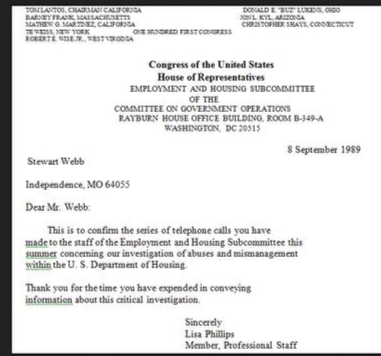
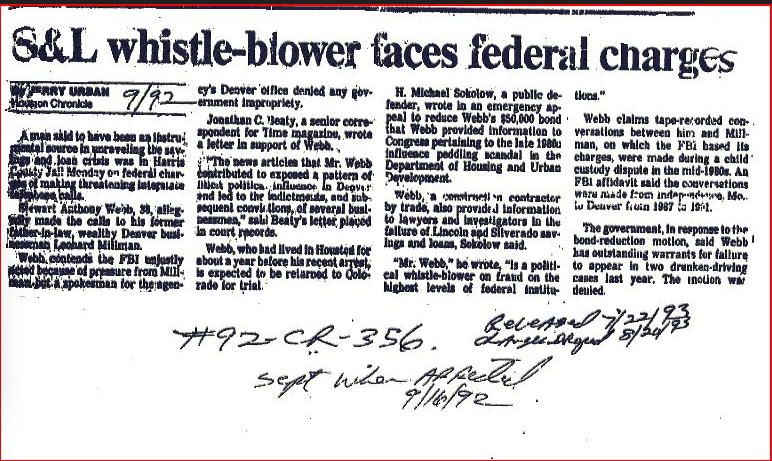
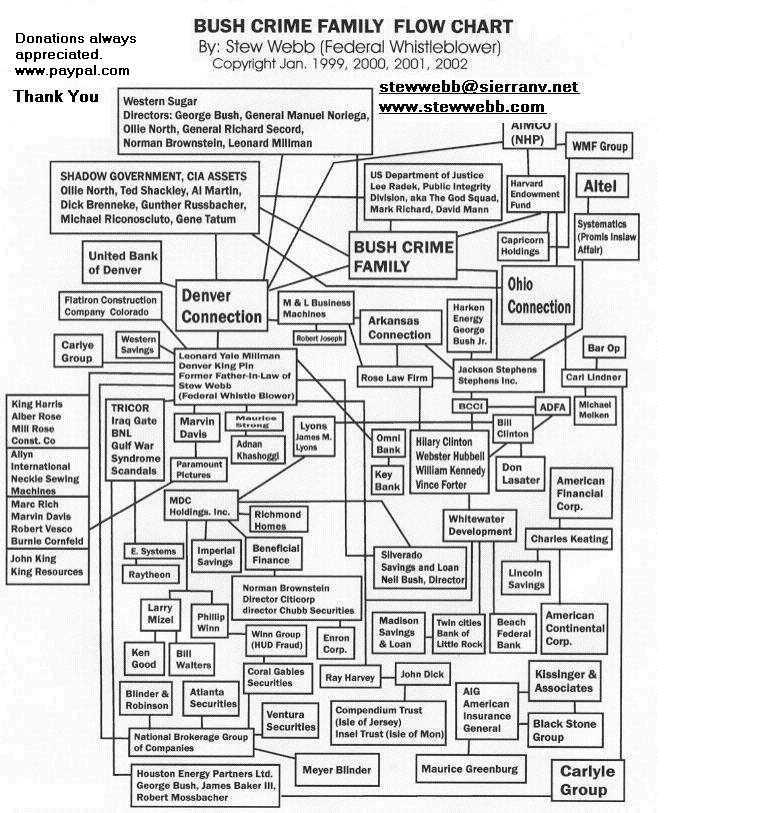




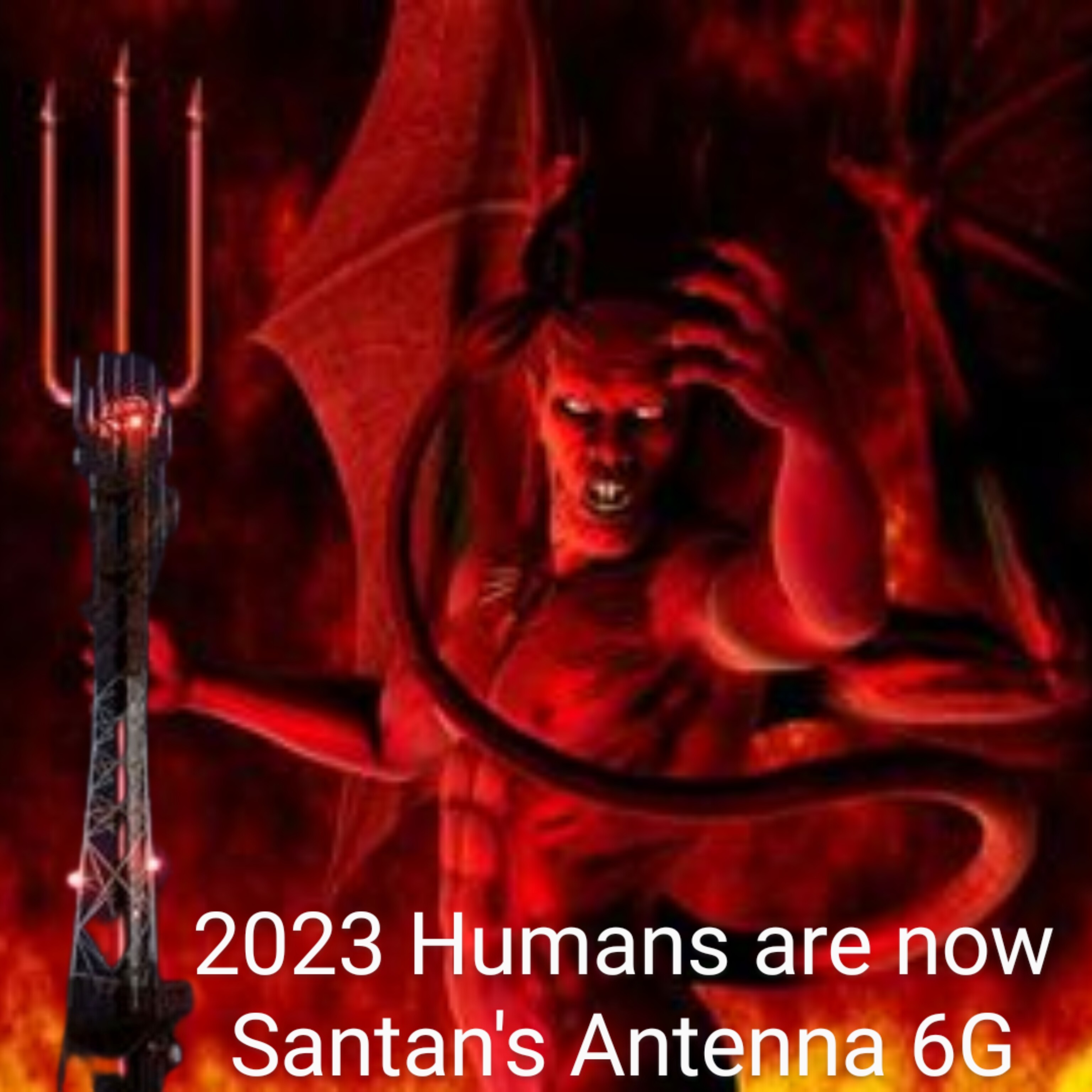
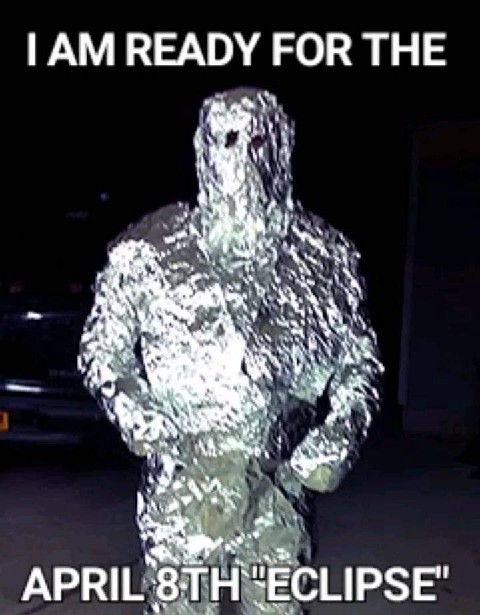
.jpg)
